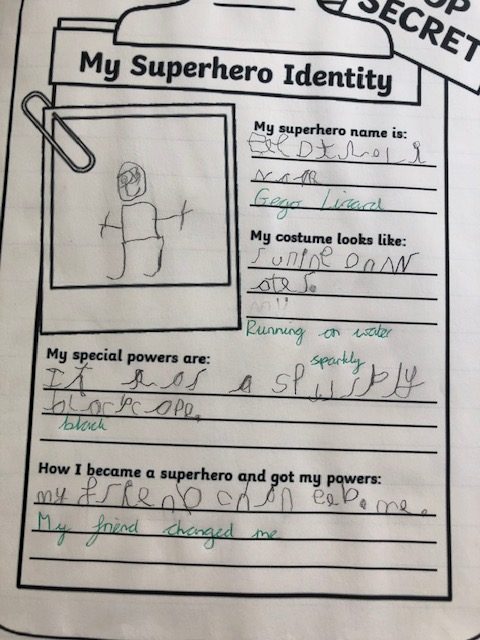Early Mark Making
Children begin to explore writing through mark making. Exploring shapes, lines and building up the motor skills children need to then begin to develop writing at a later stage.
Squiggle While You Wiggle
This is a physical approach to stimulate early writing. Children use movement with music to develop their motor skills in preparation for writing. In Nursery & Reception the children take part in squiggle whilst you wiggle sessions. First they paint each other to help them get familiar with the parts of the body. Then they will learn a new gross motor movement to a piece of music. They will dance using this movement and use it to make marks, this can be in foam, on paper, in sand etc. This is then developed into more fine motor skills to develop pinch and grip skills ready for developing writing later on. They will then use this action to think of letters they can form that use this shape. These sessions are great fun but most importantly help your child to be confident mark makers.
Funky Fingers
Following on from Squiggle, the children then explore developing fine motor skills, developing finger strength and accuracy by completing a variety of tasks using different equipment in our Funky Finger Activity Stations.



Development of Writing
30 to 50 months
At this stage the children sometimes begin to give meaning to marks as they draw and paint. They will also start to give meanings to marks that they see in different places.
40 to 60+ months

By now, the children are giving meaning to marks they make as they draw, write and paint. They begin to break the flow of speech into words and continue rhyming string. Focus will be on hearing and saying the initial sound in words. Before they begin to segment the sounds in simple words and blend them together. Next, they will make links sounds to letters, naming and sounding the letters of the alphabet. From this knowledge the will begin to use some clearly identifiable letters to communicate meaning, representing some sounds correctly and in sequence. Finally, they will be able to write most of the following; own name, labels and captions. Many children will also be able to attempt writing short sentences in meaningful contexts, such as using a picture to retell simply that part of a story.
Early Learning Goal for Writing 
Children use their phonic knowledge to write words in ways which match their spoken sounds. They also write some irregular common words. They write simple sentences which can be read by themselves and others. Some words will be spelled correctly and others are phonetically plausible.
